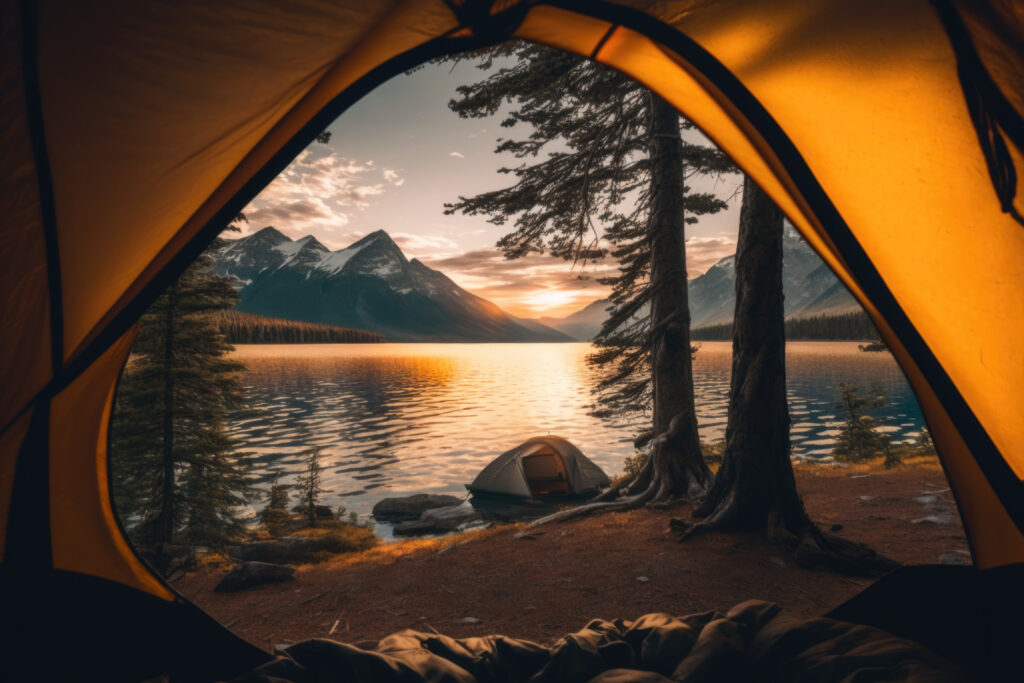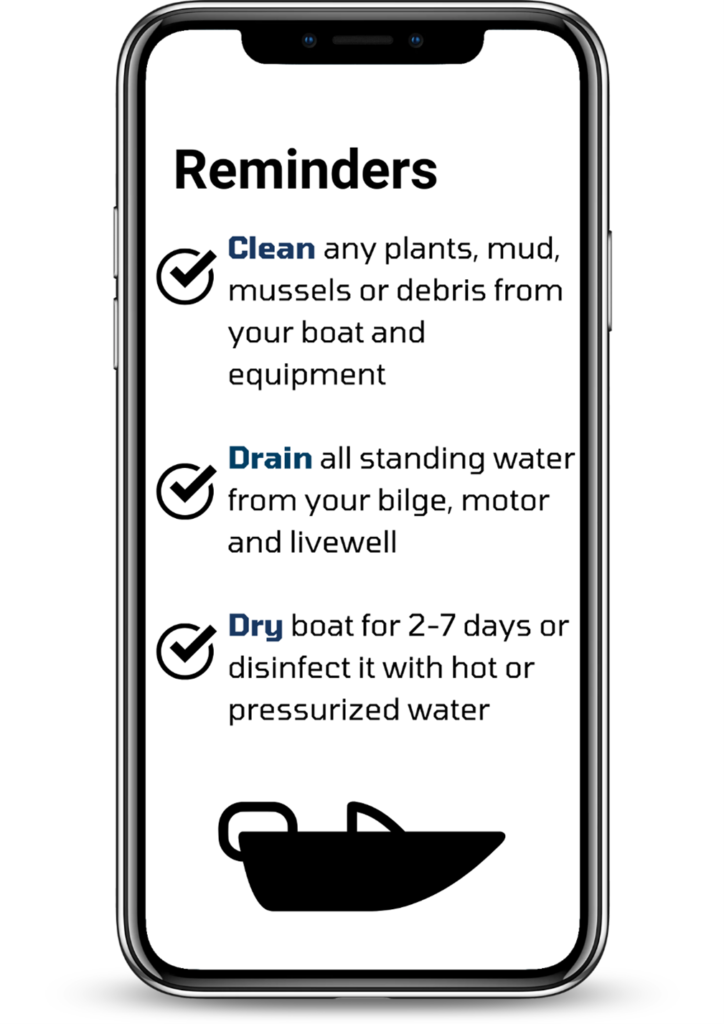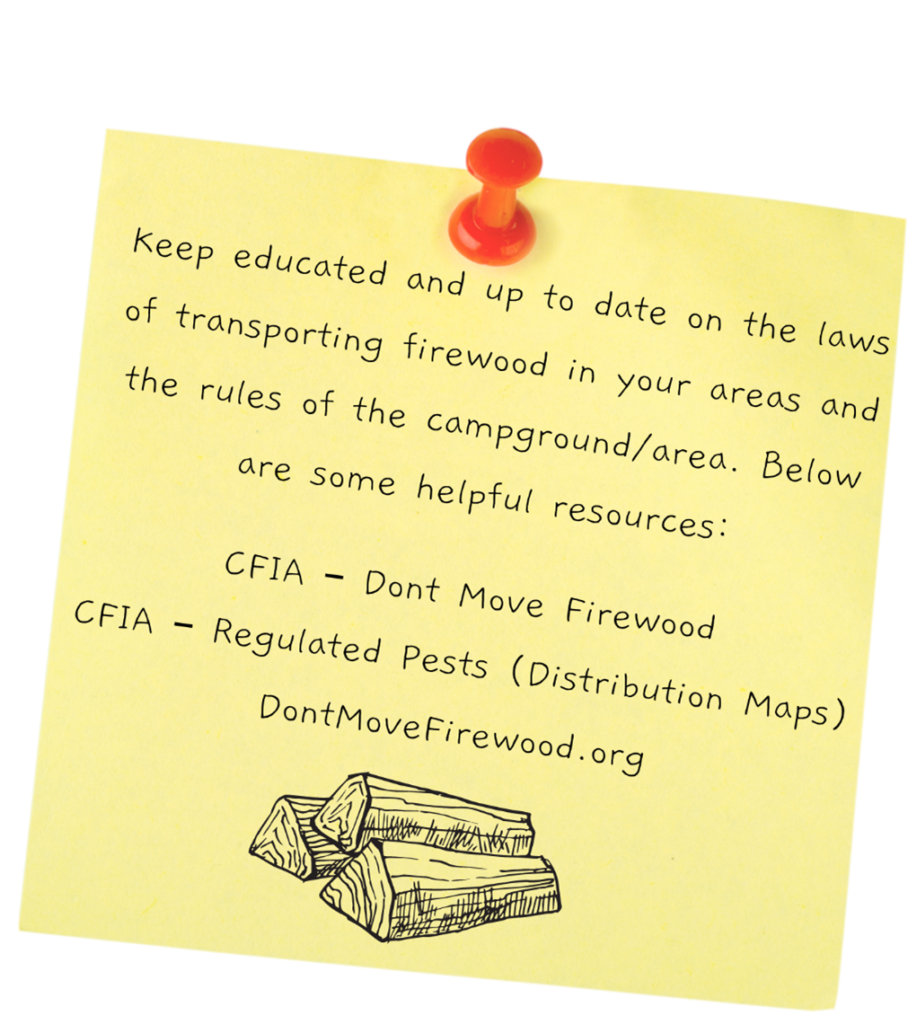Spring is here, and summer camping is on the horizon. You might have already made a couple of campsite reservations, anticipating peaceful days fishing out on the lake and evenings by the campfire.
While camping is a bona fide way to reconnect with nature, it can be a one-sided relationship. Human activity is a major contributor to the spread of invasive species, which can kill, crowd out, and devastate native species and their ecosystems.
Plan your perfect camping trip
While camping this year, you want to minimize your chance of spreading invasive species, so you include key preventative steps in your weekend camping itinerary below. Preventing the spread of invasive species doesn’t get in the way of any of your plans but makes a big difference to the local ecosystem, ensuring you can enjoy your favourite camping spot for years to come.

Camping Itinerary
8:00 AM Morning Hike
You and your dog start the day out with a crisp morning hike. You know that invasive species can hitchhike on people’s boots, clothing, equipment, and pets, impacting the natural areas where we love to hike.
To prevent the spread of invasive species when you’re on the trails, you bring along a hand-held boot brush – this is just a small brush (hard bristles work the best) that is available in many types of stores. You use your boot brush to clean your shoes, pets, and gear before arriving and before leaving, along with manually picking off any debris, mud, seeds, and burs. The boot brush also gets a good inspection to ensure it isn’t harbouring mud from elsewhere.
You also make sure to remain on the designated trails and keep your dog on a leash to reduce the chance of dropping off or picking up any invasive species.


1:00 PM Fishing
Catch you later, it’s time to spend some time out on the water! You know that species can easily stick onto boat trailers, motors, or transducers, or be present in any standing water in the boat. That’s why before transferring your boat overland from home, you made sure to practice Clean, Drain, Dry to remove any plants from your boat, motor, and trailer. In Ontario, watercraft users must clean their boats of any visible aquatic vegetation or debris and drain any standing water in the boat. It’s the law!

While boating to your favourite fishing spot, you avoid driving through floating mats of aquatic vegetation. Boats can cut through these mats and cause invasive plants and plant parts to spread.
You’re familiar with invasive species like round goby and sea lamprey, and if you catch or spot an invasive species, you will report the sighting to EDDMapS. You also assess each fish you catch to determine how to and whether or not to release them back into the water. Some invasives (e.g., grass carp) cannot be released back into the water, and there are specific steps to follow if you catch one.

When the fishing day’s over, you make sure to properly dispose of your locally-sourced live bait by dumping it at least 30 meters from any waterbody. Improper disposal can lead to a new invasion. To further prevent any spread, you never use invasive species as bait, such as jumping worms.
7:00 PM Campfire
On the way back to your site, you stop by the camp store to buy firewood instead of hauling it from home (which frees up space in your trunk for all your fishing gear!). This store has certified heat-treated (kiln-dried) firewood, which further avoids the risk of spreading invasive species.
The movement of firewood plays a significant role in the accidental spread of invasive insects, as firewood can harbour eggs and larvae of invasive insects like emerald ash borer. If undetected, you could unknowingly transport these eggs and larvae within the firewood to another location where they can establish and begin to impact local ecosystems.

8:00 AM Head Home
After a relaxing weekend, it’s time to head home. When packing up, you inspect your tent, materials, and vehicle to ensure they’re not harbouring any invasive species or their egg masses. As much as you love your camping site, you don’t want to bring any of its pests home with you!
Like any other camping weekend, you enjoyed the beauty and biodiversity that nature offers, but this weekend you took a few extra easy steps to protect it in return.

